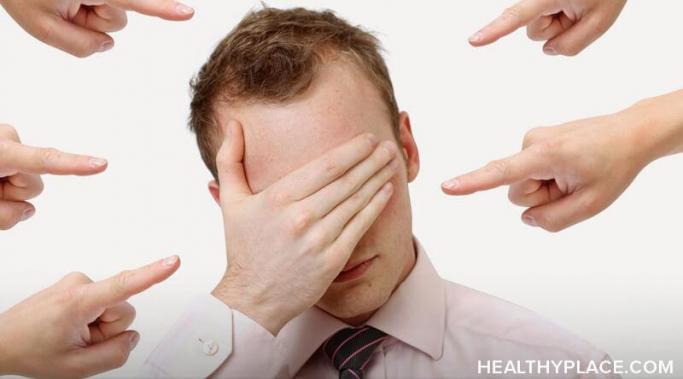A couple of weeks ago, I volunteered to distribute sanitary products and a hot meal to the unhoused community of Washington D.C. through the impactful and committed organization, The Distant Relatives Project. The experience produced a mix of emotions. I felt heartbroken to see so many individuals in need; the worst of it was learning that a large number of unhoused individuals who struggle with mental health issues do not have access to professional help. It is a crisis.
Stigmatizing Words, Labels
To some degree, we're each aware mental health treatment is stigmatized, and that stigma is one of the barriers to people seeking professional guidance for mental illness and mental health struggles. What I don't think people would expect is how this stigma can also manifest in people's good intentions in conversations about mental health treatment.
A misconception bred by mental health stigma is your mental illness is your entire identity. It can even go as far as suggesting there is no separating you from it. While mental illness and mental health struggles are a part of who we are, they don't completely make up our identity.
One of the ways mental health stigma is spread is through negative labels and name-calling those with a mental health condition. This can happen no matter where a person falls on the mental health spectrum, whether they have a manageable or severe mental illness, but in all cases, calling people with a mental illness names not a helpful solution to mental illness.
We miss the signs of mental struggle others are going through because mental health stigma presents warped ideas of what mental illness and the people with it look like. If we're only looking for those that fit a certain mold when trying to pick out someone with mental illness, chances are we're going to miss those who are in a mental struggle.
The idea of mental strength often plays into mental health stigma. Out of the many ways we endeavor to encourage people through tough periods of mental illness, encouragement to use mental strength is pointless. Many of these ways are phrases or words meant with the best intentions, but they can also be potentially harmful — or at least I’ve seen the harmful effects they’ve had. Of the number of platitudes people say, one I get stuck on is “stay strong.”
Is it possible to destigmatize mental illness by refusing to use the word "stigma?" If you’re having a discussion about mental illness, it’s almost inevitable someone will mention stigma. When talking mental health, stigma refers to the misinformed perceptions and ideas about mental illness and those with it. It’s a big component in why people feel ashamed to have a mental illness and suffer in silence instead of seeking mental health treatment and understanding that mental illness is just an illness. Since there is still widespread misinformation, it’s not surprising the word "stigma" comes up often. What is surprising, however, is that there are those who say stigma does not exist, we should stop using the word "stigma," and I’ve even seen the claim that it’s offensive. Can we destigmatize mental illness by not using the word "stigma?"
Dehumanizing people with addiction is something many people do without thinking about it. For example, when someone says “addict,” there are probably a few images that readily come to mind and descriptors to go along with those images — crackhead, drunkard, nasty, degenerate, the list goes on. This is the stigma of mental illness at play as preconceived notions and dated ideas of what it means to have an addiction take over our perception. When we let that happen, we’re dehumanizing people with addiction. This happens with all kinds of addiction, too.
Using mental illnesses as insults is invalidating and harmful. These days, it’s hard to go far without coming across the topic of mental health and mental illness. Considering it’s still such a taboo subject that people shy away from, this seems like something we should be rejoicing over as advocates and activists — and I would, but for the fact that it’s still being spoken of in negative, stigmatizing words. Although people are mentioning mental illness seemingly more and more, all it’s doing it adding to the already existing stigma since mental illness is being used to insult people.
How we ask about a person's mental illness matters because language can stigmatize mental illness. At the core of stigmatizing mental health conversations, is the idea that mental illnesses are not real, legitimate illnesses. It’s one of the basics when talking about mental illness, and to some degree, it seems like we should be well past this statement by now. But we’re not. It’s not just naysayers of mental illness that make the mistake, either; in some cases, even those who have mental illness or know someone who does still don't know what to say to someone with a mental illness. They seem to want to think of mental illness as something other than a sickness and end up contributing to stigma in the questions they ask about a person's mental illness.









